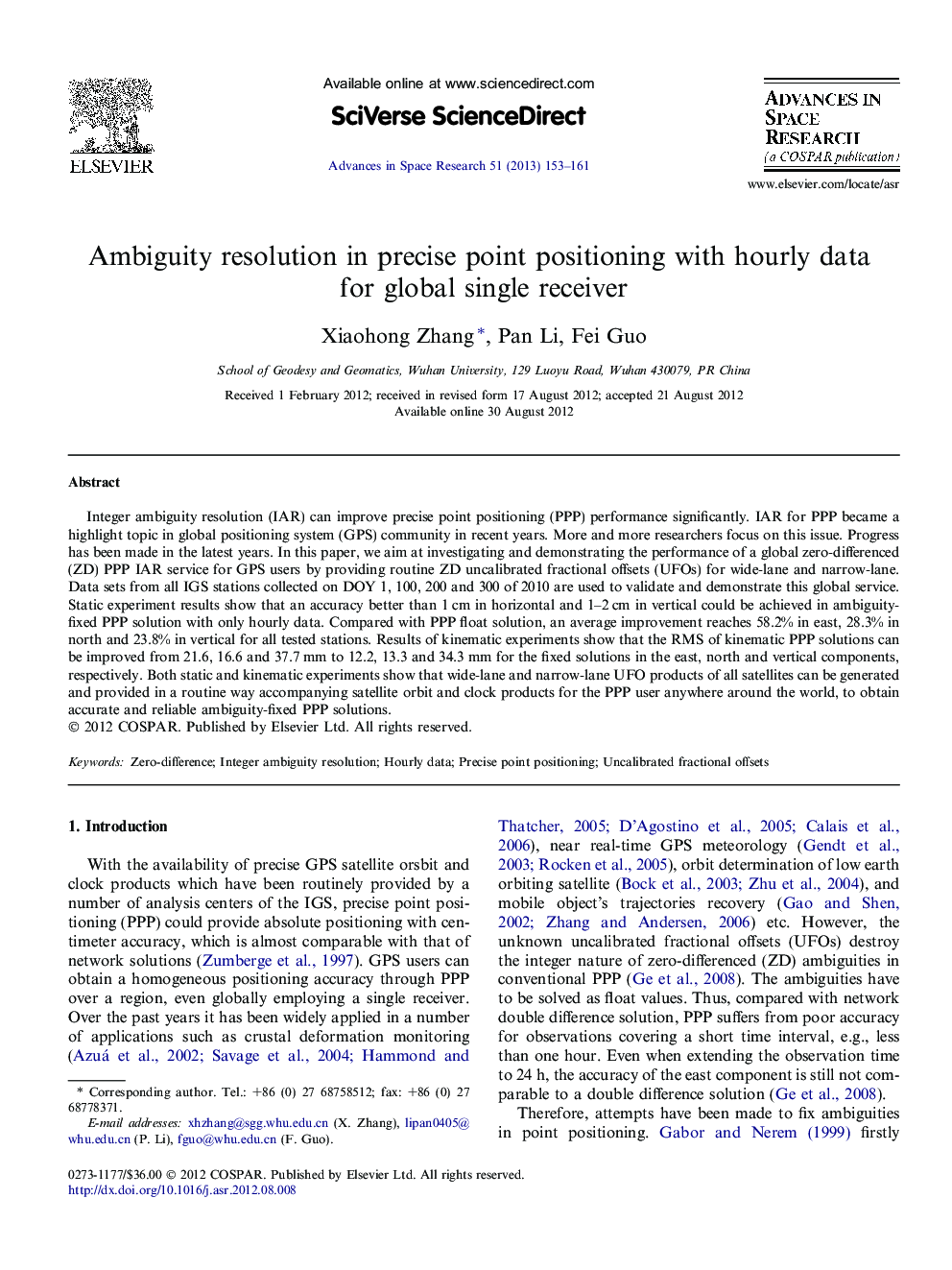| Article ID | Journal | Published Year | Pages | File Type |
|---|---|---|---|---|
| 1765062 | Advances in Space Research | 2013 | 9 Pages |
Integer ambiguity resolution (IAR) can improve precise point positioning (PPP) performance significantly. IAR for PPP became a highlight topic in global positioning system (GPS) community in recent years. More and more researchers focus on this issue. Progress has been made in the latest years. In this paper, we aim at investigating and demonstrating the performance of a global zero-differenced (ZD) PPP IAR service for GPS users by providing routine ZD uncalibrated fractional offsets (UFOs) for wide-lane and narrow-lane. Data sets from all IGS stations collected on DOY 1, 100, 200 and 300 of 2010 are used to validate and demonstrate this global service. Static experiment results show that an accuracy better than 1 cm in horizontal and 1–2 cm in vertical could be achieved in ambiguity-fixed PPP solution with only hourly data. Compared with PPP float solution, an average improvement reaches 58.2% in east, 28.3% in north and 23.8% in vertical for all tested stations. Results of kinematic experiments show that the RMS of kinematic PPP solutions can be improved from 21.6, 16.6 and 37.7 mm to 12.2, 13.3 and 34.3 mm for the fixed solutions in the east, north and vertical components, respectively. Both static and kinematic experiments show that wide-lane and narrow-lane UFO products of all satellites can be generated and provided in a routine way accompanying satellite orbit and clock products for the PPP user anywhere around the world, to obtain accurate and reliable ambiguity-fixed PPP solutions.
► Zero-differenced uncalibrated fractional offsets can be estimated reasonably well. ► The positioning accuracy is much improved by fixing PPP ambiguities for hourly data. ► Global PPP users can obtain hourly centimeter-level positioning service.
